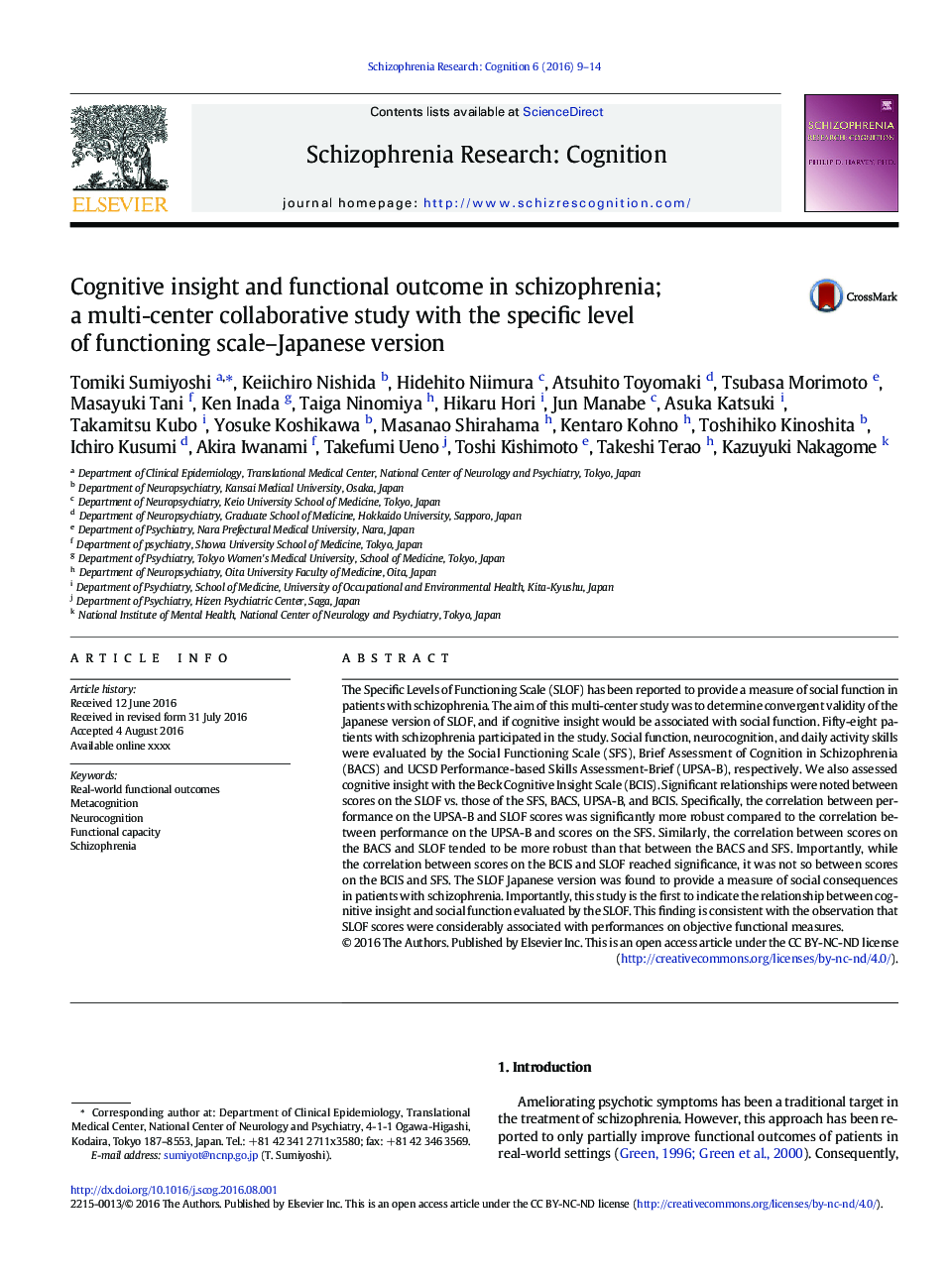| Article ID | Journal | Published Year | Pages | File Type |
|---|---|---|---|---|
| 4191671 | Schizophrenia Research: Cognition | 2016 | 6 Pages |
The Specific Levels of Functioning Scale (SLOF) has been reported to provide a measure of social function in patients with schizophrenia. The aim of this multi-center study was to determine convergent validity of the Japanese version of SLOF, and if cognitive insight would be associated with social function. Fifty-eight patients with schizophrenia participated in the study. Social function, neurocognition, and daily activity skills were evaluated by the Social Functioning Scale (SFS), Brief Assessment of Cognition in Schizophrenia (BACS) and UCSD Performance-based Skills Assessment-Brief (UPSA-B), respectively. We also assessed cognitive insight with the Beck Cognitive Insight Scale (BCIS). Significant relationships were noted between scores on the SLOF vs. those of the SFS, BACS, UPSA-B, and BCIS. Specifically, the correlation between performance on the UPSA-B and SLOF scores was significantly more robust compared to the correlation between performance on the UPSA-B and scores on the SFS. Similarly, the correlation between scores on the BACS and SLOF tended to be more robust than that between the BACS and SFS. Importantly, while the correlation between scores on the BCIS and SLOF reached significance, it was not so between scores on the BCIS and SFS. The SLOF Japanese version was found to provide a measure of social consequences in patients with schizophrenia. Importantly, this study is the first to indicate the relationship between cognitive insight and social function evaluated by the SLOF. This finding is consistent with the observation that SLOF scores were considerably associated with performances on objective functional measures.
